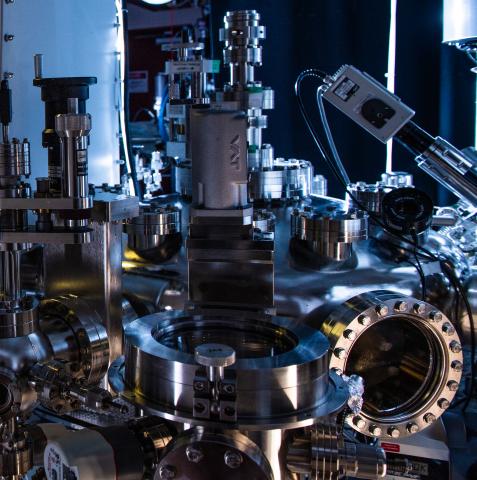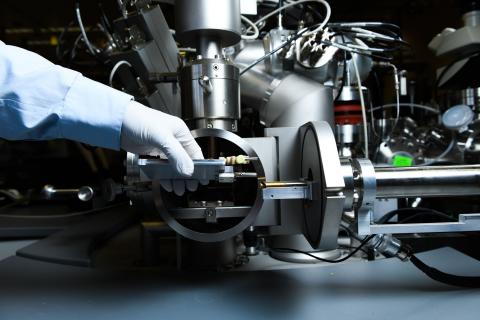"Visualizing the Hidden Half: Plant-Microbe Interactions in the Rhizosphere" Plant roots and the associated rhizosphere constitute a dynamic environment that fosters numerous intra- and interkingdom interactions, including metabolite exchange between plants and soil mediated by root exudates and the...
Filter results
Tags
- (-) Spectroscopy (4)
- (-) Mass Spectrometry (3)
- Omics (16)
- Viruses (10)
- Health (8)
- Soil Microbiology (8)
- Virology (8)
- Virus (8)
- Genomics (7)
- High Throughput Sequencing (7)
- Imaging (5)
- Mass Spectrometer (5)
- PerCon SFA (5)
- Sequencer System (5)
- Ions (4)
- Microbiome (4)
- Nanoparticles (4)
- sequencing (4)
- Electrical energy (3)
- Energy (3)
- Fungi (3)
- metabolomics (3)
- Microscopy (3)
- Proteomics (3)
- RNA Sequence Analysis (3)
- Sodium (3)
- Synthetic Biology (3)
- Microarray (2)
- Polymer Materials (2)
- X-Ray Spectroscopy (2)
The recently developed real-time nuclear–electronic orbital (RT-NEO) approach provides an elegant framework for treating electrons and selected nuclei, typically protons, quantum mechanically in nonequilibrium dynamical processes. However, the RT-NEO approach neglects the motion of the other nuclei...
Human infections caused by viral pathogens trigger a complex gamut of host responses that limit disease, resolve infection, generate immunity, and contribute to severe disease or death. Here, we present experimental methods and multi-omics data capture approaches representing the global host...
Category
Stanford Synchrotron Radiation Lightsource Experimental Station 14-3b is a bending magnet side station dedicated to X-Ray Imaging and Micro X-Ray Absorption Spectroscopy of biological, biomedical, materials, and geological samples. Station 14-3b is equipped with specialized instrumentation for XRF...
Category
The Physical Electronics Instruments (PHI) Quantum 2000 X-Ray Photoelectron Spectrometer (XPS) is a unique Micro-Focused Scanning X-Ray system that uses a focused monochromatic aluminum K X-ray beam that can be varied in size from as small as 10 μm in diameter to approximately 200 μm. The beam can...
The IONTOF TOF.SIMS 5 data source is a time-of-flight secondary ion mass spectrometer and powerful surface analysis tool used to investigate scientific questions in biological, environmental, and energy research. Among the most sensitive of surface analysis tools, it uses a high-vacuum technique...



